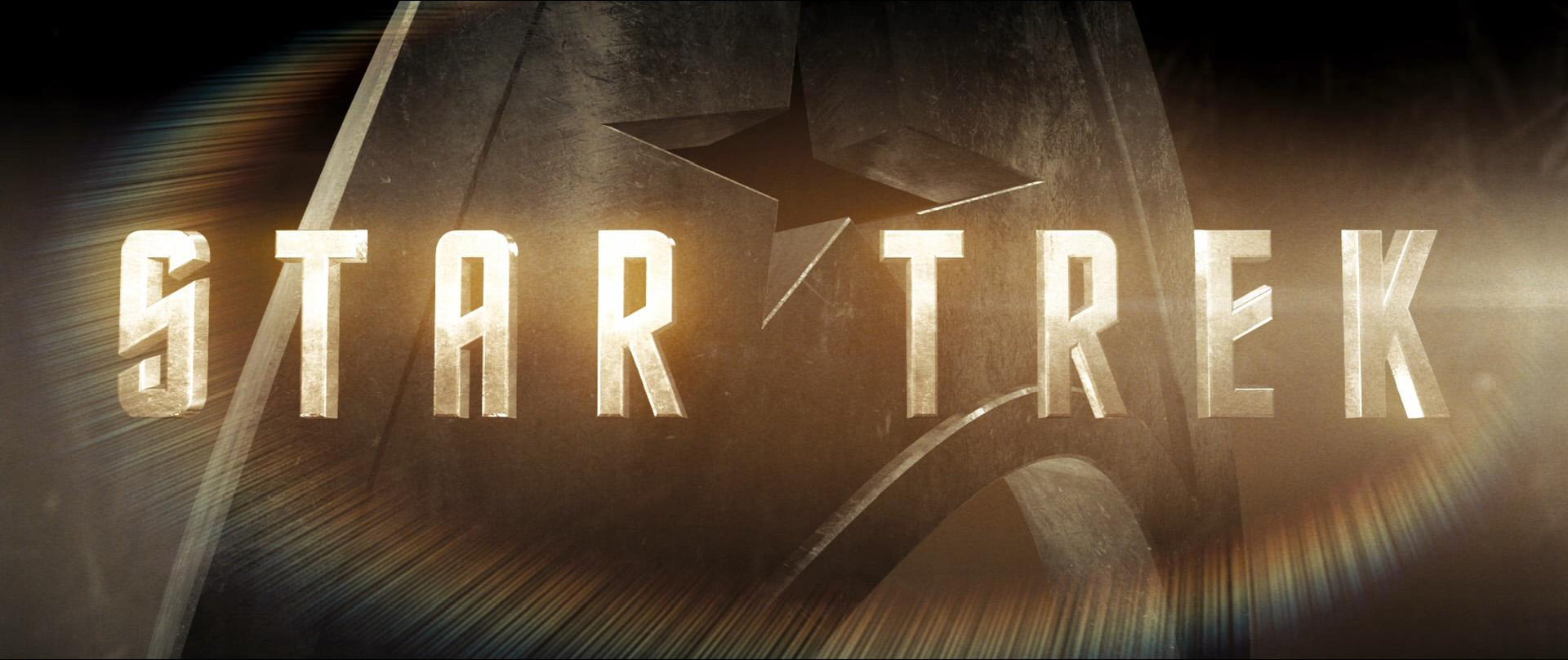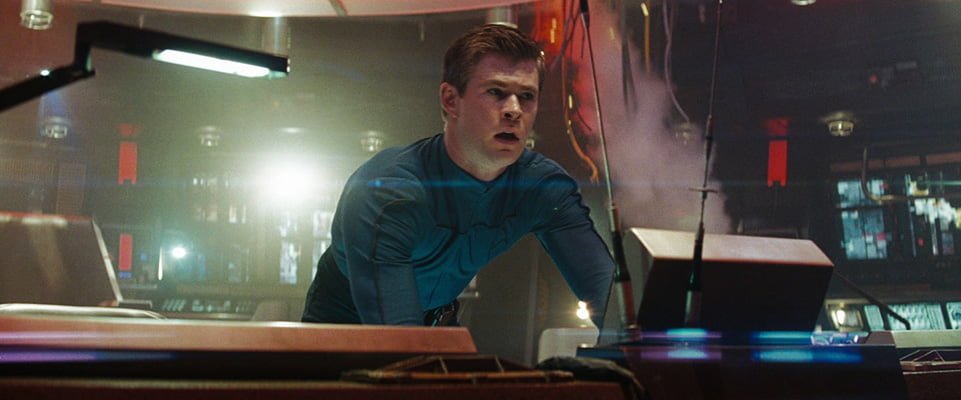
Hello and welcome once again to ‘Final Frontier Friday! This week we’ll be looking at ‘Star Trek’. I know what you’re thinking. “Yes Nick, this is a ‘Star Trek’ column. Care to narrow it down a bit?” Well, since you asked nicely… Though actually I already did. This week we’re revisiting ‘Star Trek 2009’, also known as ‘Lens Flare: The Motion Picture’, or as I derisively dubbed it many years ago, ‘Space Adventure’.
It’s a column I never thought I’d be writing, if only for the fact that I hated the film. In fact, when I was first developing the idea that became this column, I joked to a friend that I’d have to work my way through the other eight hundred hours of ‘Trek’ and get a substantial raise before I even considered subjecting myself to the reboot movies again.
So why now? Well, the movie’s tenth anniversary was last week. And while that wasn’t exactly a thing that was prominent on my radar (owing to my longstanding antipathy toward (or, on a good day, disinterest in)) the Kelvin films, as the anniversary approached, I realized it would soon be ten years since I’d actually sat down and watched this thing. Suffice to say that’s a very… odd feeling for me, and not just because I’m a professional ‘Star Trek’ nerd.
There are, after all, some really bad episodes (including a few I’ve covered here in the past) that I’ll watch more frequently. And yes, I watch those on purpose. But I digress. That realization prompted me to dig out my old ticket stub and as a result, I realized that I had a ‘Final Frontier Friday’ due on the tenth anniversary. Not of the film itself, but of the first/only time I saw it. Thus, in light of ‘Star Trek 2009’ hitting a landmark anniversary and in the spirit of fairness, this seemed as good a time as any to give it another go.
And so here we are.
After four seasons, ‘Star Trek: Enterprise‘ was cancelled in 2005 by UPN, a network that would itself be put out of its misery the following year. This sucked, not just because I genuinely liked the show, but because for the first time in eighteen years there wouldn’t be a new season of ‘Star Trek’ on the air the following fall. See, I’m not normally one to date myself in this column, but I was born a week before ‘Encounter at Farpoint’ first aired. I quite literally grew up with the Berman era of ‘Star Trek’. Put another way, I was spoiled by a constant flow of new ‘Trek’. But I was also well aware of the franchise’s history and more to the point, of the simple fact that a property like ‘Star Trek’ was never going to stay dead. It had risen from the ashes of cancellation before and would doubtless do so again. The question was when. Or rather, that was one of the questions. Even the best of ‘Star Trek’ can get a bit formulaic sometimes, so you can forgive my eighteen-year-old self for not thinking about it in those terms. But it soon became apparent that the other big question was what form ‘Star Trek’ would take when it finally did return. And boy, were there options.
 There’s a tendency to remember the period of ‘Trek’ history between the end of ‘Enterprise’ and the reboot as a longer dry spell than it actually was. I’ve been guilty of this myself. After all, four years can feel pretty long when you’re coming off of nearly two decades of constant ‘Star Trek’ production. But in actuality, a revival of some sort was in the works practically from the moment ‘Enterprise’ went off the air.
There’s a tendency to remember the period of ‘Trek’ history between the end of ‘Enterprise’ and the reboot as a longer dry spell than it actually was. I’ve been guilty of this myself. After all, four years can feel pretty long when you’re coming off of nearly two decades of constant ‘Star Trek’ production. But in actuality, a revival of some sort was in the works practically from the moment ‘Enterprise’ went off the air.
For about a year after the cancellation, there were a number of competing pitches that made their way into the public sphere. The first of these actually involved Rick Berman, in sort of the last gasp of his time with ‘Star Trek’. Dubbed ‘Star Trek: The Beginning’, the script introduced an all-new chip and crew and would have (finally) depicted the Romulan War on screen, something that ‘Enterprise had been teasing through much of its run. Around the same time, development began on ‘Star Trek: Final Frontier’, which would have been an animated web series (Can you tell it was the mid-2000s?) set a century after a devastating war between with the Romulans that left the Federation splintered and much of the galaxy impossible to traverse at warp speed.
Additionally, there were a pair of projects that were in the earliest stages of development but had not yet been formally pitched before the studio settled on a direction for the franchise. The first of these was ‘Star Trek: Federation’, a Bryan Singer-produced series set in a far-flung future in which a corrupt and stagnant Federation commissions a new Enterprise to jumpstart a new Age of Discovery while confronting a mysterious new enemy. At the same time, ‘Babylon 5’ creator J. Michael Straczynski and ‘Dark Skies’ creator Bruce Zabel put together a fourteen page treatment they titled ‘Star Trek: Re-Boot the Universe’. This was pretty much what it sounded like: a clean-slate reboot of the original series.
On top of all of this (“and perhaps more…”), the online fan community was debating the merits of perennial fan-favorite concepts like “a Captain Sulu show” or “a Klingon show” were discussed on message boards. It was also around this time that Michael Dorn started kicking around his idea for a “Captain Worf” show. So as I said, there were options aplenty.
 But while all of this was going on, Paramount had a sense of how they wanted to handle this. You see, they had to do a feature film. This was because CBS and Paramount were in the process of splitting up (now, ten years later, there’s talk of the two studios reunifying) and unless Paramount moved quickly, they would lose the movie rights. To that end, they had approached the writing team of Roberto Orci and Alex Kurtzman for ideas on how to revive the franchise. According to Berman, this was prompted by their frequent collaborator J.J. Abrams, who suggested a ‘Star Trek’ revival when Paramount signed him to a five picture deal in the wake of ‘Mission: Impossible III’. In any case by April 2006, some eleven months after the last episode of ‘Enterprise’ aired, it was official. The studio would be moving ahead with a ‘Star Trek’ movie written by Orci and Kurtzman writing and Abrams attached as a producer. Abrams would additionally sign on to direct a year later, in February 2007, having waited until he was satisfied with the scripts before making the commitment. Though initially targeted for a Christmas 2008 release, the film would eventually be pushed to May 8, 2009.
But while all of this was going on, Paramount had a sense of how they wanted to handle this. You see, they had to do a feature film. This was because CBS and Paramount were in the process of splitting up (now, ten years later, there’s talk of the two studios reunifying) and unless Paramount moved quickly, they would lose the movie rights. To that end, they had approached the writing team of Roberto Orci and Alex Kurtzman for ideas on how to revive the franchise. According to Berman, this was prompted by their frequent collaborator J.J. Abrams, who suggested a ‘Star Trek’ revival when Paramount signed him to a five picture deal in the wake of ‘Mission: Impossible III’. In any case by April 2006, some eleven months after the last episode of ‘Enterprise’ aired, it was official. The studio would be moving ahead with a ‘Star Trek’ movie written by Orci and Kurtzman writing and Abrams attached as a producer. Abrams would additionally sign on to direct a year later, in February 2007, having waited until he was satisfied with the scripts before making the commitment. Though initially targeted for a Christmas 2008 release, the film would eventually be pushed to May 8, 2009.
That accounts for the talent, but what about the story? Well, Orci and Kurtzman settled on an idea that thanks to its remarkably stubborn refusal to die and had been floating around the ‘Star Trek’ community for years. You see, ‘Star Trek IV’ was originally conceived as something very different from the politically charged sendoff to the original cast that we were ultimately given. The original idea for the sixth ‘Star Trek’ film was conceived by producer Harve Bennett as something of an ace in the hole following the disappointing performance of ‘Star Trek V: The Final Frontier’. Motivated in par as a reaction to the prior film and partly as way to mitigate the increasing cost of the cast’s salaries, Bennett began work on a script for ‘Star Trek: The First Adventure’ (also known as ‘Star Trek: Starfleet Academy’ or ‘Star Trek: The Academy Years’). That, of course, would ultimately be abandoned in favor of ‘The Undiscovered Country’, but the idea lingered in the periphery of the ‘Trek’ creative space for years before finally surfacing in this reboot.
And it was to be a reboot, because those were in vogue at the time. Okay, I’m being a bit glib. I’m sure that’s not the only reason, but it was undeniably a trend in the first decade of the twenty-first century. It’s hard to find any definitive word on precisely when it was the film became a reboot, but if I were a betting man? I’d stake a lot of latinum on it having been decided fairly early in the process. After all, much of the discussion around the film (particularly from Abrams and the writers) has centered on the idea of “reinvigorating” the franchise, taking it “back to basics” and introducing it to a new audience. Publicly, however, there remained a measure of ambiguity over whether the film would be a prequel or a reboot even after it became clear that they were going with a variation on the ‘Starfleet Academy’ pitch. That, though, is due more to Abrams’ so-called “Mystery Box” approach to filmmaking and his attendant penchant for secrecy and rumor mongering than to any actual uncertainty behind the scenes.
But even the most closely guarded mystery box is going to be opened eventually…
